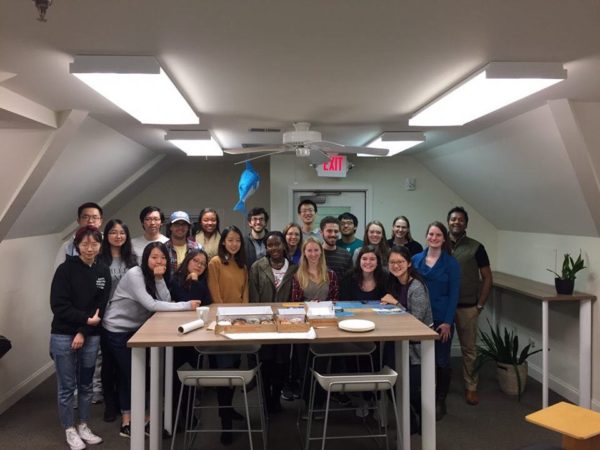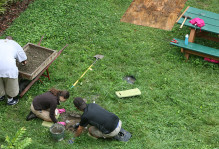How AidData Students Work To Solve Real-World Problems
By Martin Pan ’20
What is China’s intent when it made development investments to other countries? Is China using “debt-trap diplomacy”? What sectors and countries received most non-Western governments’ development investments?
Over the past two years, I tried to answer these questions when working on the Transparent Development Footprints (TDF) team at AidData, a research lab at William & Mary’s Global Research Institute. Our team’s primary goal is to track underreported financial flows made by emerging donors like China and Qatar. To achieve this goal, we looked at various official documents, academic articles and media reports to identify a transfer of money, goods, or services from the donor to the recipient and use different sources to cross-check the accuracy of each transfer.
I first joined the TDF team as a research assistant (RA) in summer 2018. During the summer, I learned the TDF’s methodology and tracked the underreported financial flows from Qatar and China. I was impressed by the rigorous methodology and our team’s diverse language skills. Whenever we encountered a source in a language other than English, our team usually had people fluent in that language to help others to extract useful information from the source. From this summer experience, I learned how to collaborate with others and found useful information quickly from the Internet. In addition to the research work on the TDF team, I also participated in various academic talks that helped me understand our research from a broader perspective.
After the summer, I remained on the team as a senior research assistant. As a senior research assistant, I not only engaged in more research work, but also helped Junior Program Managers to manage other students on the team and recruit new members. This experience further developed my leadership and communication skills. On the research side, I witnessed and engaged in the process of updating our methodology, including shifting the priority of research from media reports to official documents and documenting complex financial structures involved in our research. I also worked on a public diplomacy publication, which aims to quantify Chinese public diplomacy in the south and central Asia. This process of updating methodology and using innovative methods to better understand the interaction among countries is very intriguing. Besides the research work, I also used programming skills to automate several regular operations inside the team to improve our working efficiency and put the program into a web application to enable people without a programming background to automate some workflows themselves.
The work on the TDF team not only allowed me to develop various skillsets, but also opened the gateway for me to engage in other research opportunities at AidData. During my time as an RA I also used programming language to conduct sentiment analysis to China’s news articles at the Diplomacy Lab and built visualization platforms for the Geoquery dataset. I found that the research skills I developed on the TDF team helped me better engage with those two experiences.
Now I am a graduating senior and I am going to a master’s program in data science after graduation. When I looked back to my internship application to AidData, I wrote: “I want to join AidData because of my interest in using data to help other people make better decisions”. The past two years at AidData further confirmed my interest and inspired me to use data to solve challenging real-world problems.





No comments.
Comments are currently closed. Comments are closed on all posts older than one year, and for those in our archive.